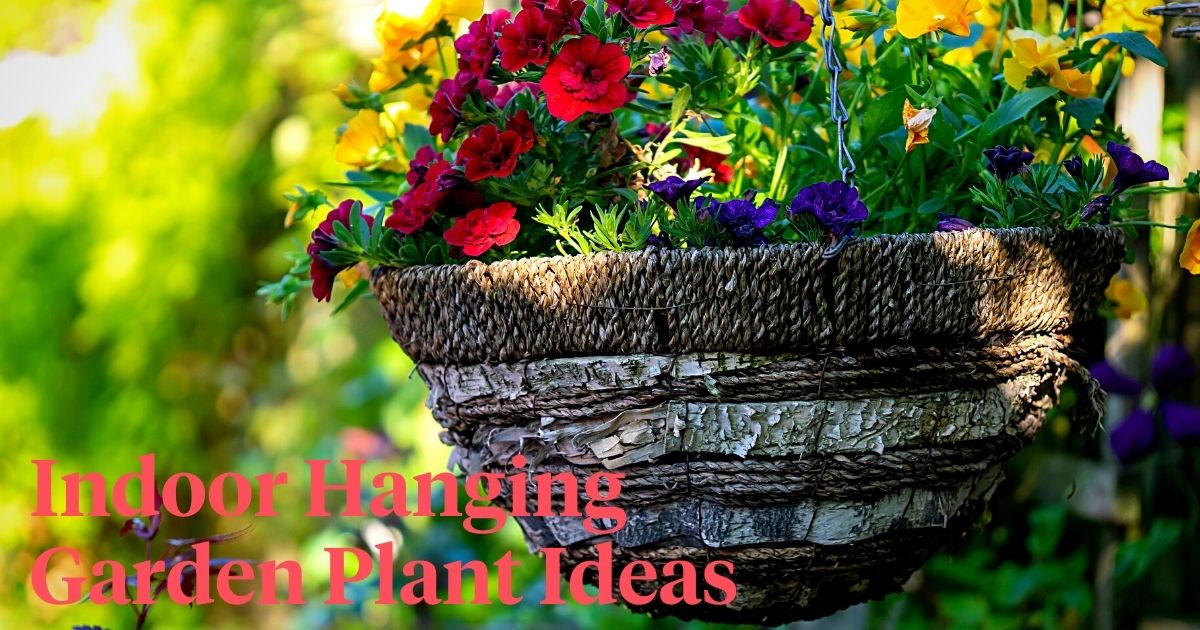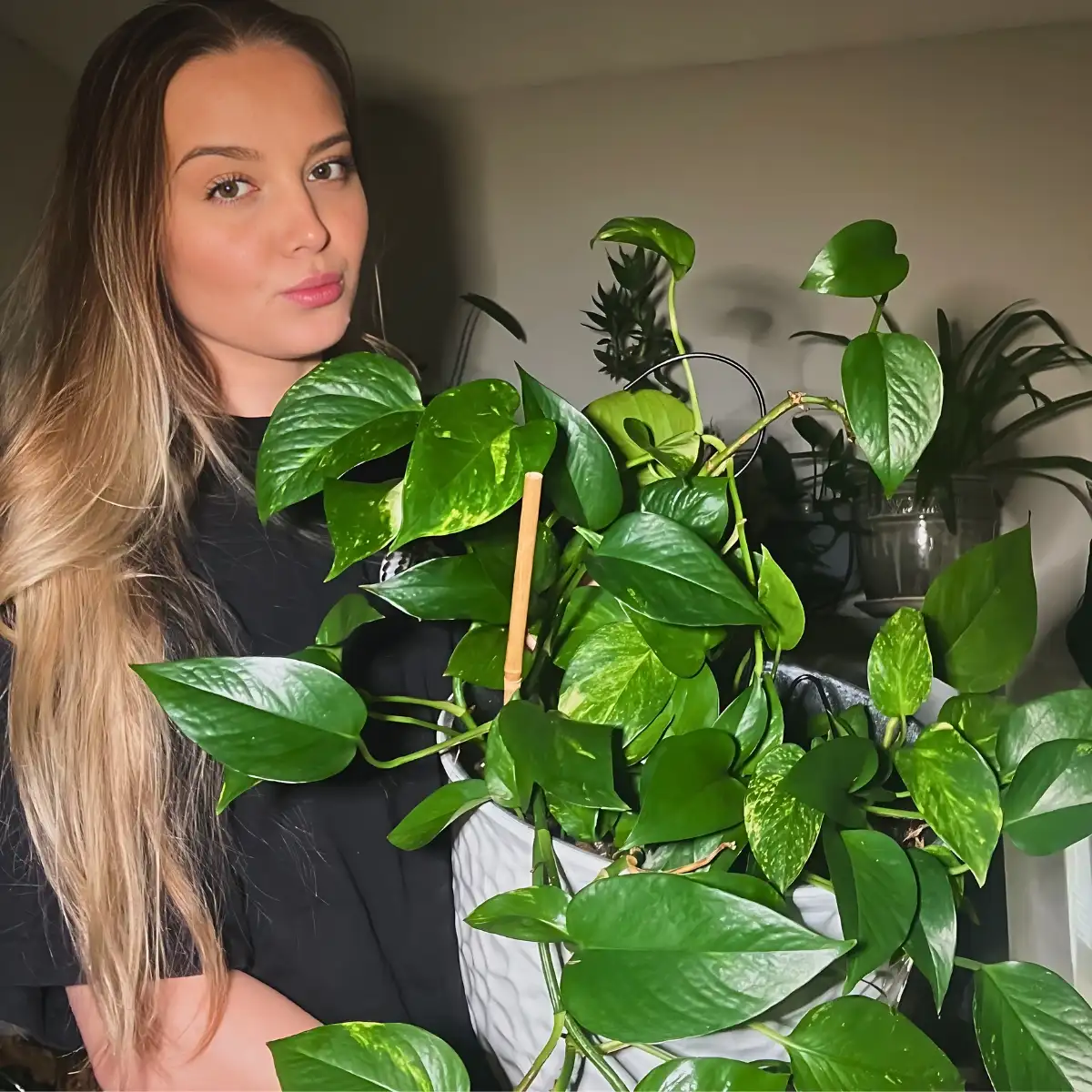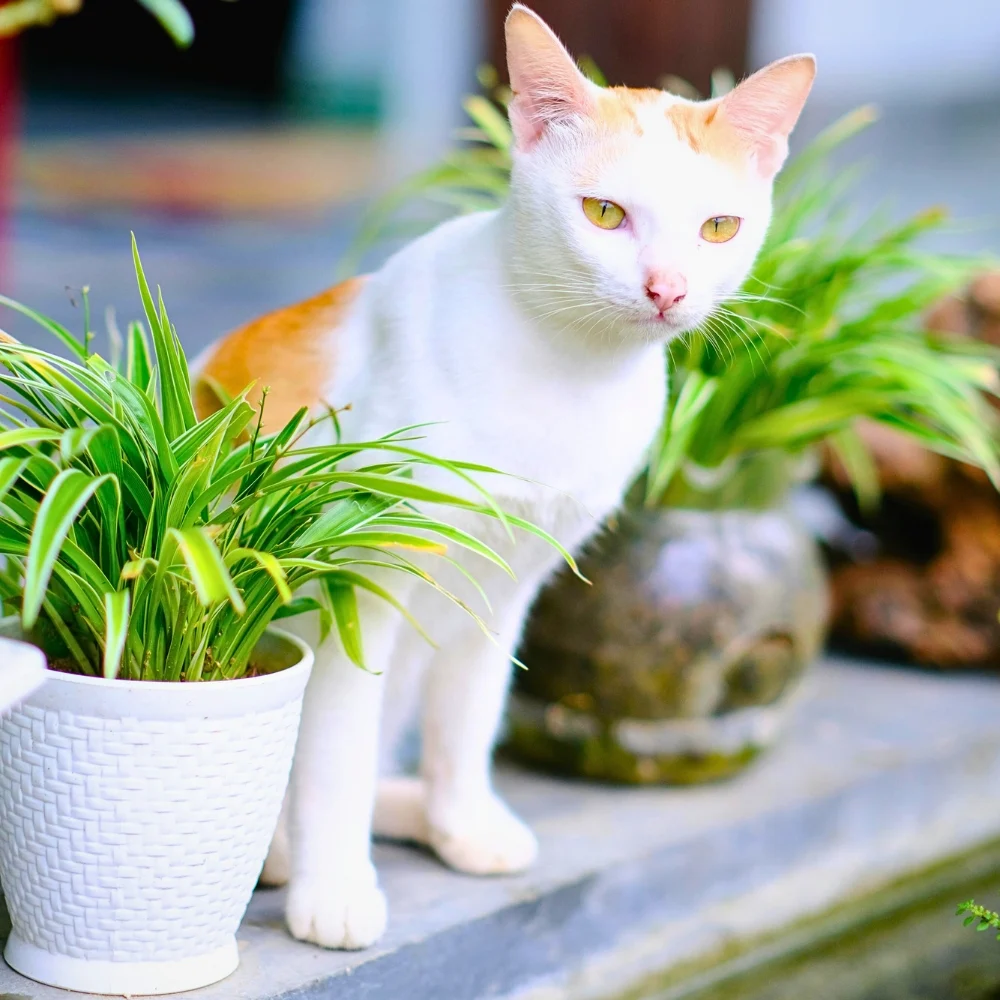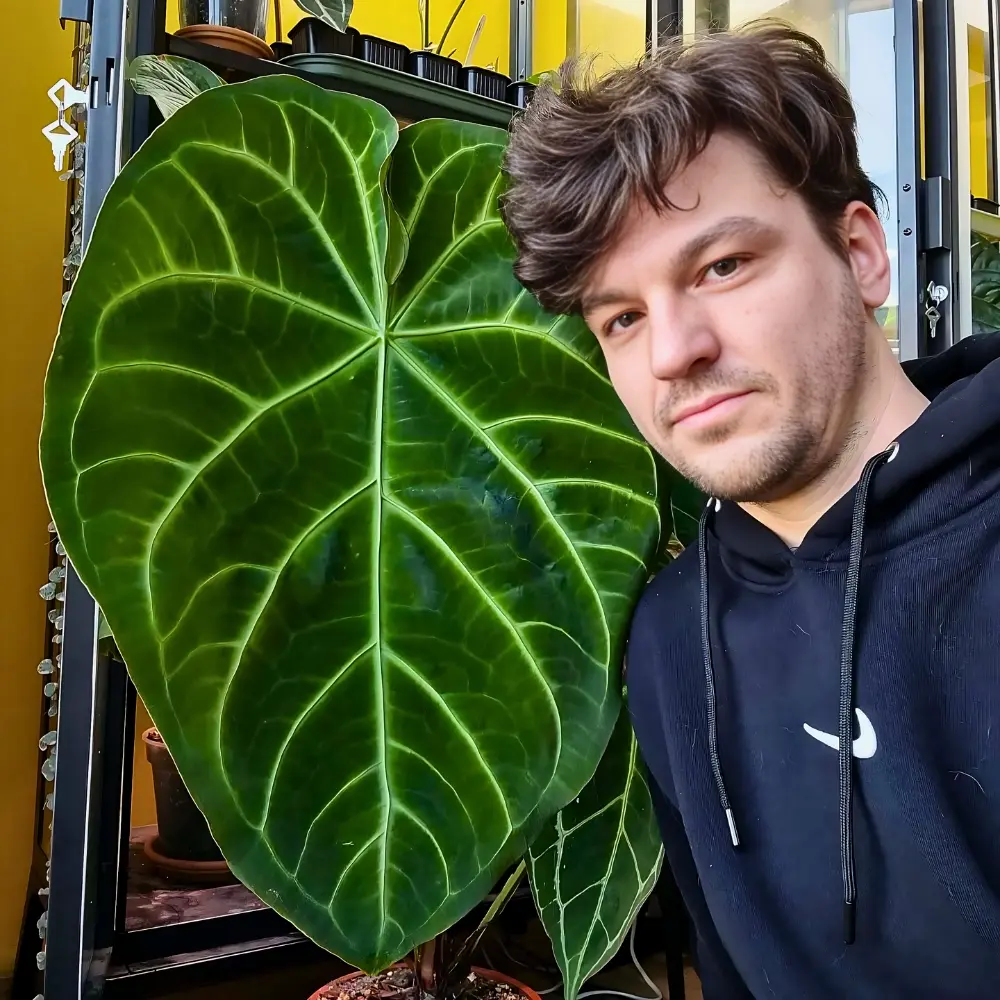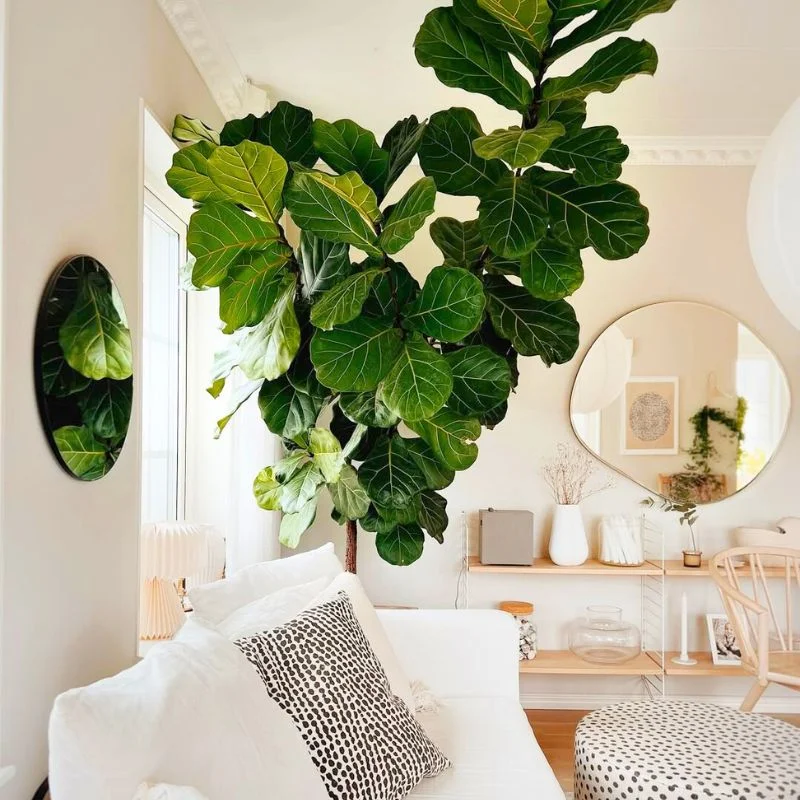Hanging gardens are a perfect way to bring color and life to virtually any space. Be it brightening up a balcony, adding some greenery and color to a small apartment, or just building an outdoor oasis to create a serene atmosphere, hanging gardens are an ideal solution to achieve sustainable beauty using plants.
These gardens have, in recent times, continued to permeate into our contemporary lifestyles, with a growing interest in indoor plants and gardens, especially in climates that suit this trend. Contemporary architectural styles have also begun pointing towards a growing interest in nature, sustainability, and a more pastoral way of living.
Hanging Garden Usage in History
The concept of hanging gardens defines a sustainable landscape or architectural style that incorporates an artistic garden, a series of viny plants, plants grown in containers and hung from a higher point such as the ceiling, or even a small urban farm built onto a wall.
It is an idea that dates back centuries ago. During ancient Hellenic times, hanging gardens were still believed to have existed since the age of antiquity; even before the Middle Ages.
They Have Been Described by Famous Historians
The fabled Hanging Gardens of Babylon, for instance, have been described by several notables including Jewish historian Josephus, and writers such as Herodotus and Philo of the Byzantium times.
These famous gardens were built by King Nebuchadnezzar II for his homesick wife, the Persian princess Amytis of Media, as she missed the forested mountains where she had once lived in her youth.
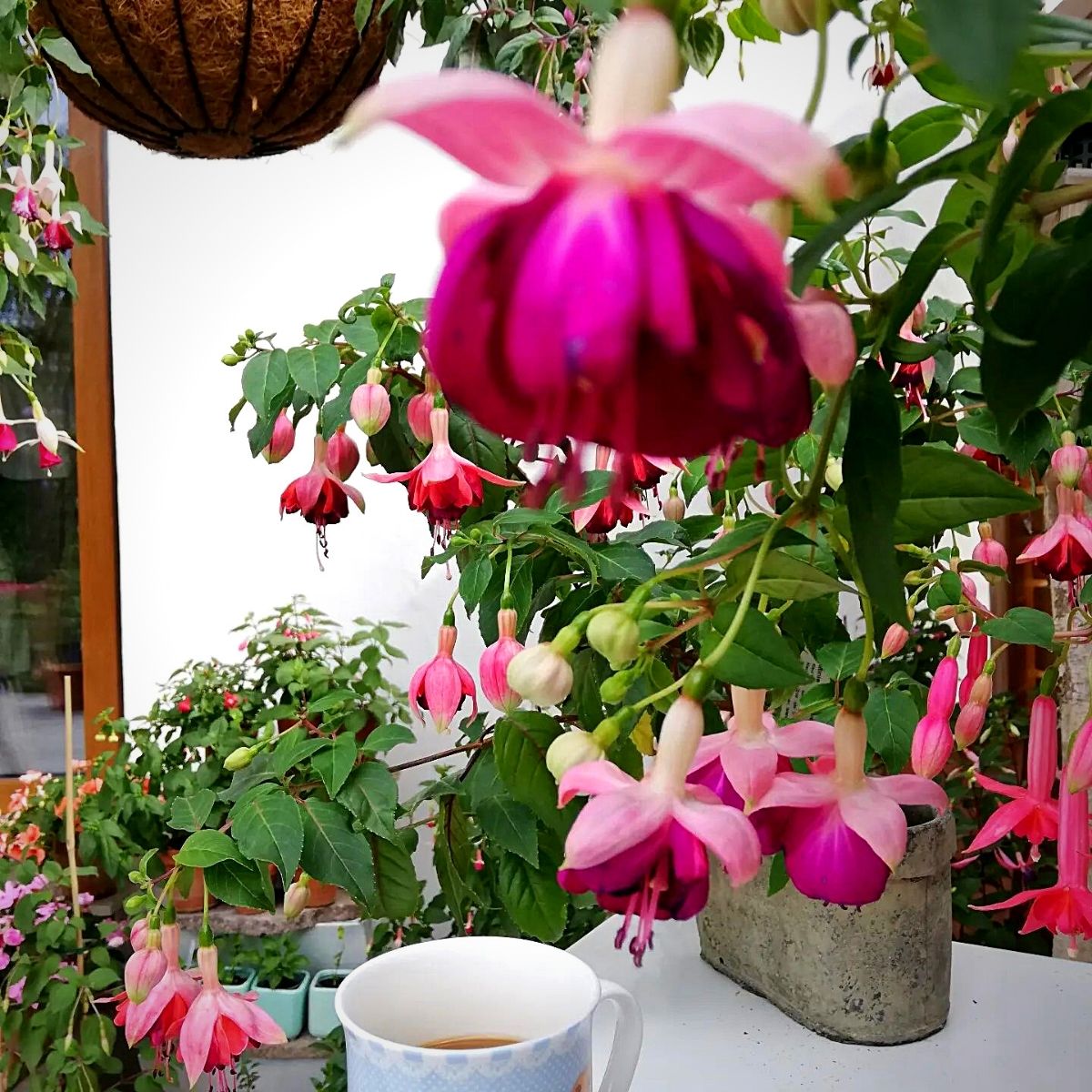
Photo by @looklike_happiness on Instagram
How Hanging Gardens Work in Our Contemporary Times
Today, however, in our extensively built-up modern landscapes where sometimes normal home gardens are hard to come by, hanging gardens come in handy. They provide a number of benefits including creating a lush green environment and also affording us some privacy from not only prying neighbors but also in interior rooms in a home.
Hanging gardens also offer other benefits and incentives such as some flexibility and space savings for gardeners, especially when space is limited, and they similarly work handy in growing not just flowers and decorative plants, but also vegetables, fruits, and herbs.
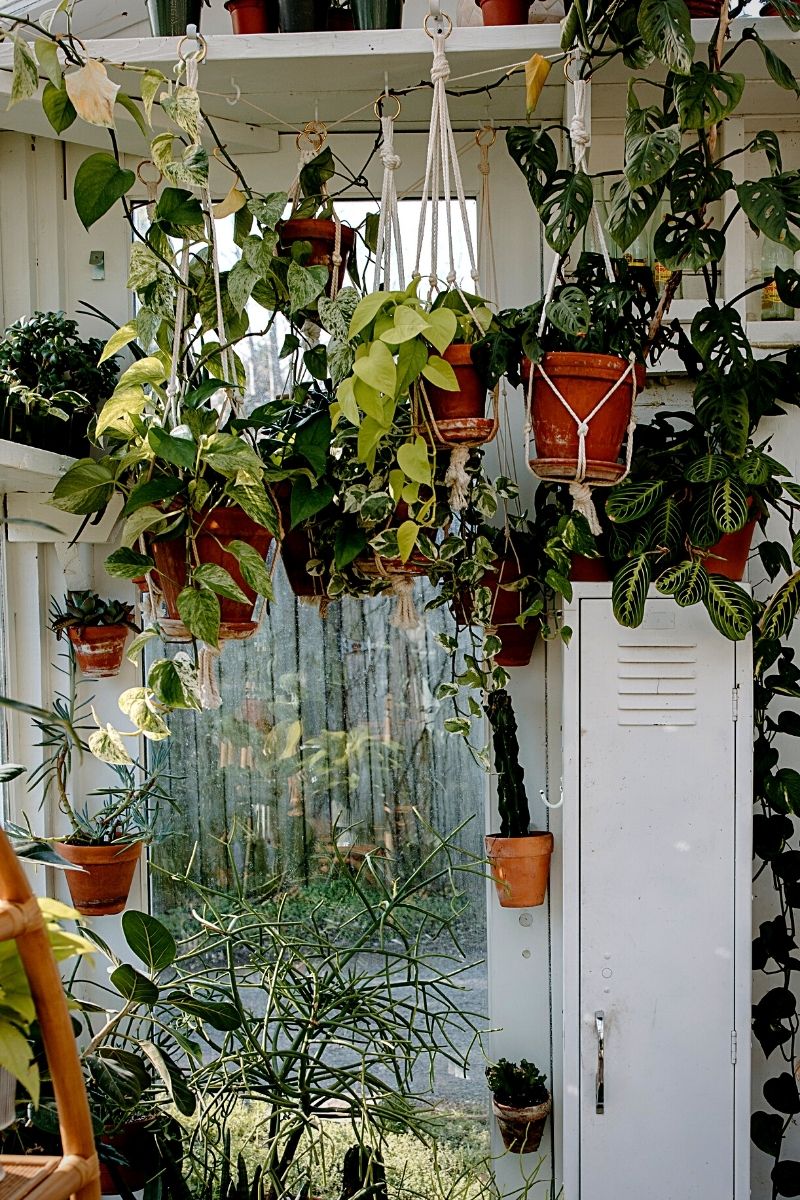
Photo by Tara Winstead on Pexels
Nowadays, hanging gardens can be grown in a variety of ways. They can be grown in baskets, pots, and even old teapots or birdcages. It is important to ensure that these containers have drainage holes to avoid waterlogging in them and causing root rot.
Such gardens should also be placed in sunny locations, and be watered often as other prerequisite plant-growing conditions are provided to keep the plants healthy and thriving.
Flowery Plant Varieties That Are a Great Choice for Indoor Hanging Gardens
There are numerous beautiful flowering plants that can thrive in a hanging garden inside your house, giving your indoors a lush feel that is not only aesthetic but also healthy in different ways. Such plants include:
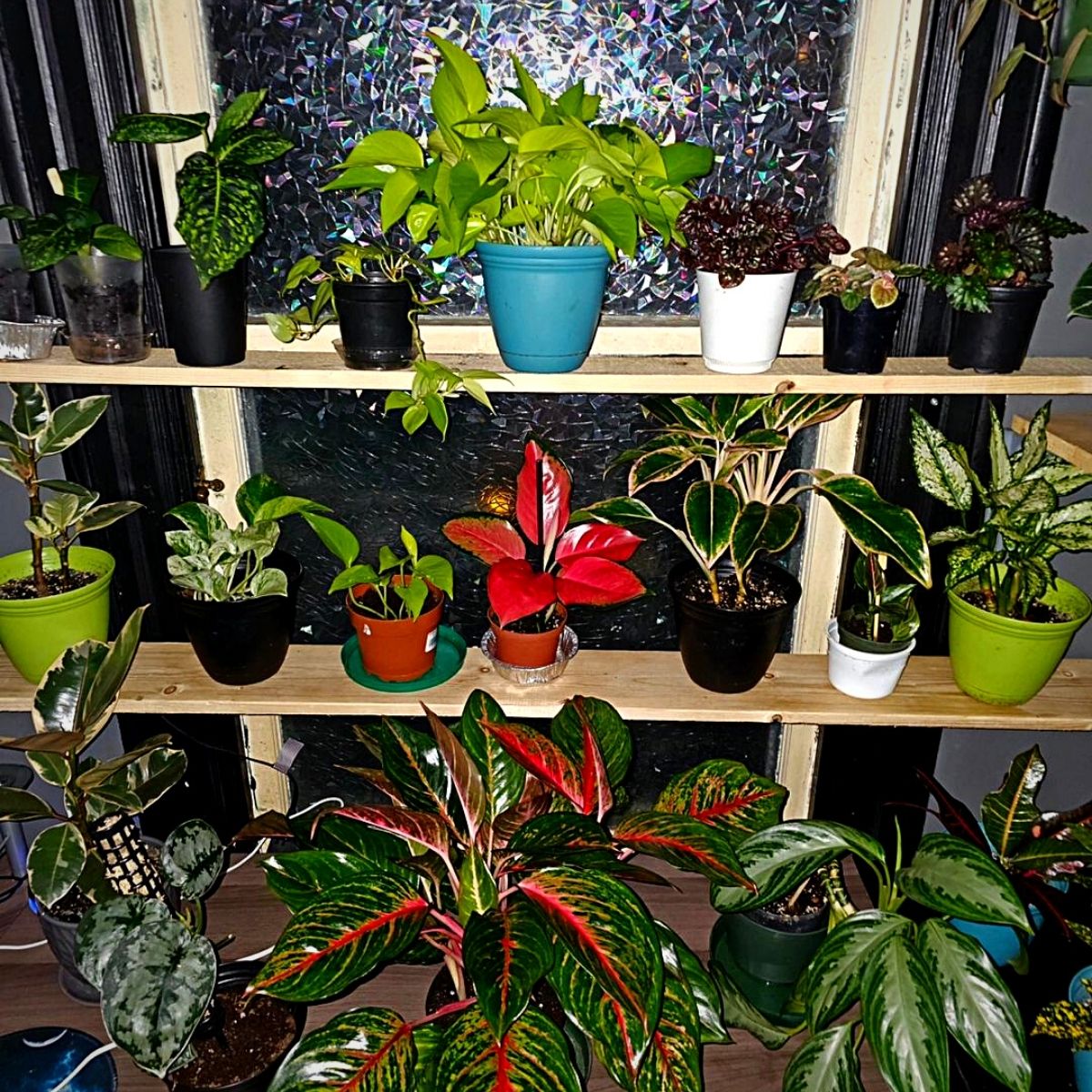
Photo by @carling1420 on Instagram
The Succulent String of Pearls
The string of pearls, a.k.a. Senecio Rowleyanus, is quite an interesting succulent plant that would definitely interest you if you're enthusiastic about indoor hanging gardens. It has cascading stems that are covered with small, round leaves that resemble pearls and produces small, white flowers that bloom in the summer.
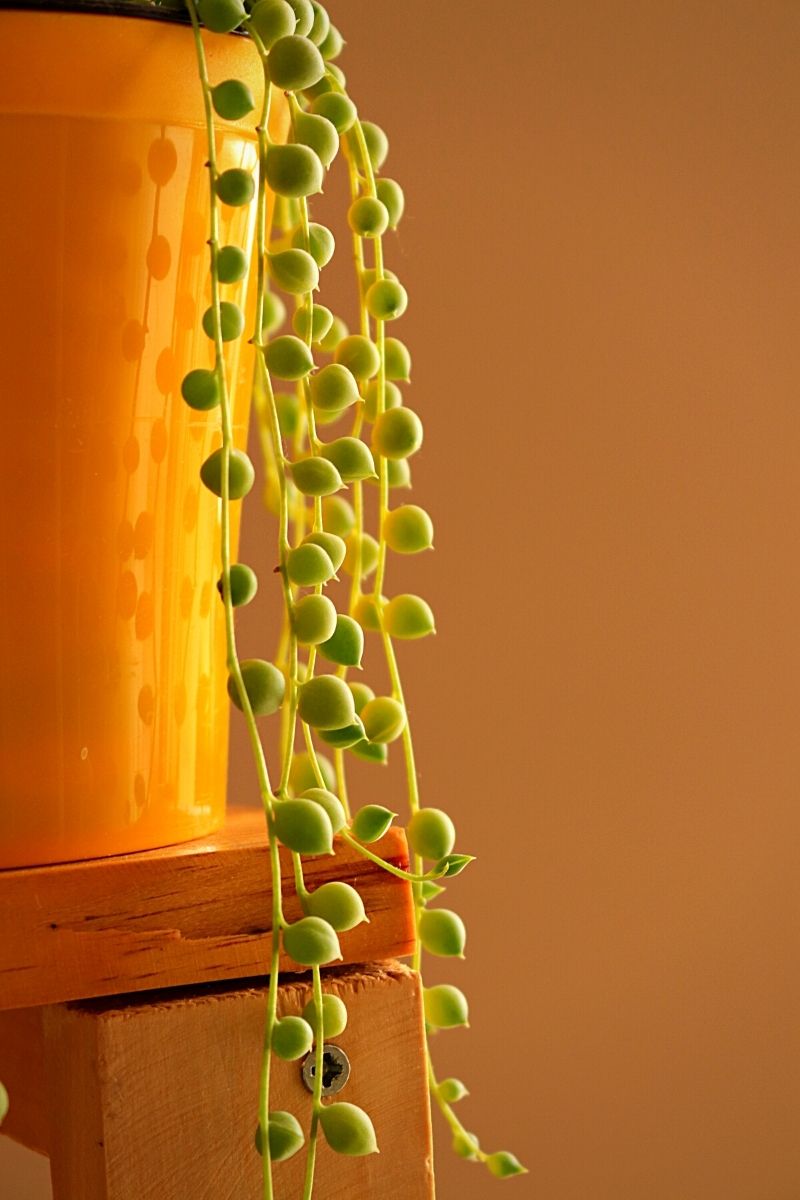
Photo by Rumeysa Akbaş on Pexels
This plant which prefers bright, indirect light, is perfect for hanging gardens, and can also add an interesting layer of texture to any floral arrangement.
Colorful Begonias
Begonia is a versatile plant that comes in a wide variety of colors and produces beautiful, delicate flowers that bloom throughout the year.
Although there are certain varieties of begonia that produce blooms in pink, white, red, or orange, these hardy plants are often grown for their foliage. Their leaves come in almost any color and pattern, making them a perfect choice for growing since they add texture and interest to the garden.
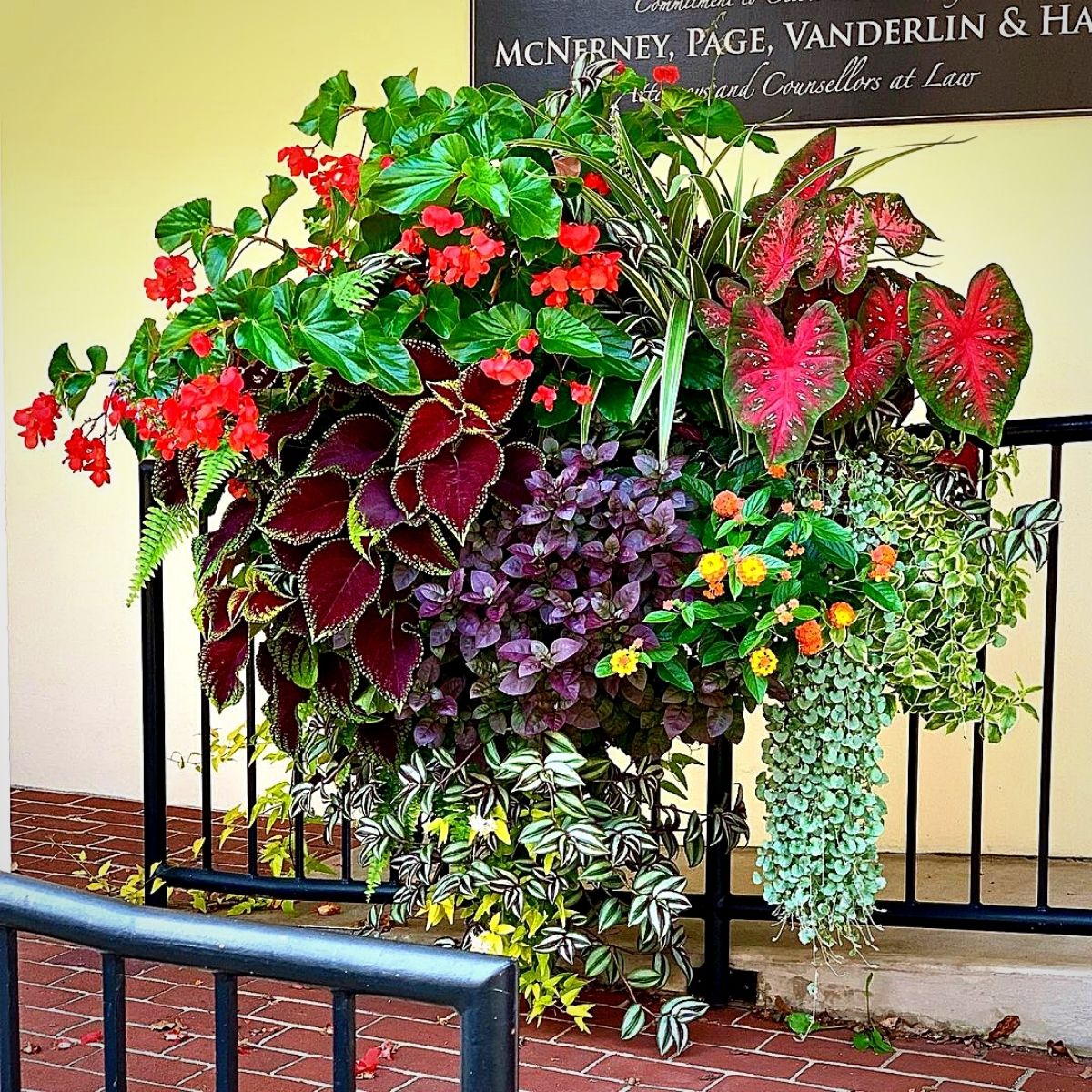
Photo by @ladydifloralgarden on Instagram
These plants also prefer bright, indirect light, and consistent moisture, and are an easy choice for containers or hanging baskets. Some varieties of begonias, such as the Dragon Wing begonia, have a trailing habit that makes them perfect for hanging baskets.
The Delicate String of Hearts
The string of hearts, a.k.a. Ceropegua Woodii, is a beautiful trailing plant that has small, heart-shaped leaves that grow on long, slender stems that can reach up to 1 meter (3 ft.) long. The leaves are covered in silver markings that enhance their look and feel. It prefers bright, indirect light and produces small, pinkish-purple flowers.
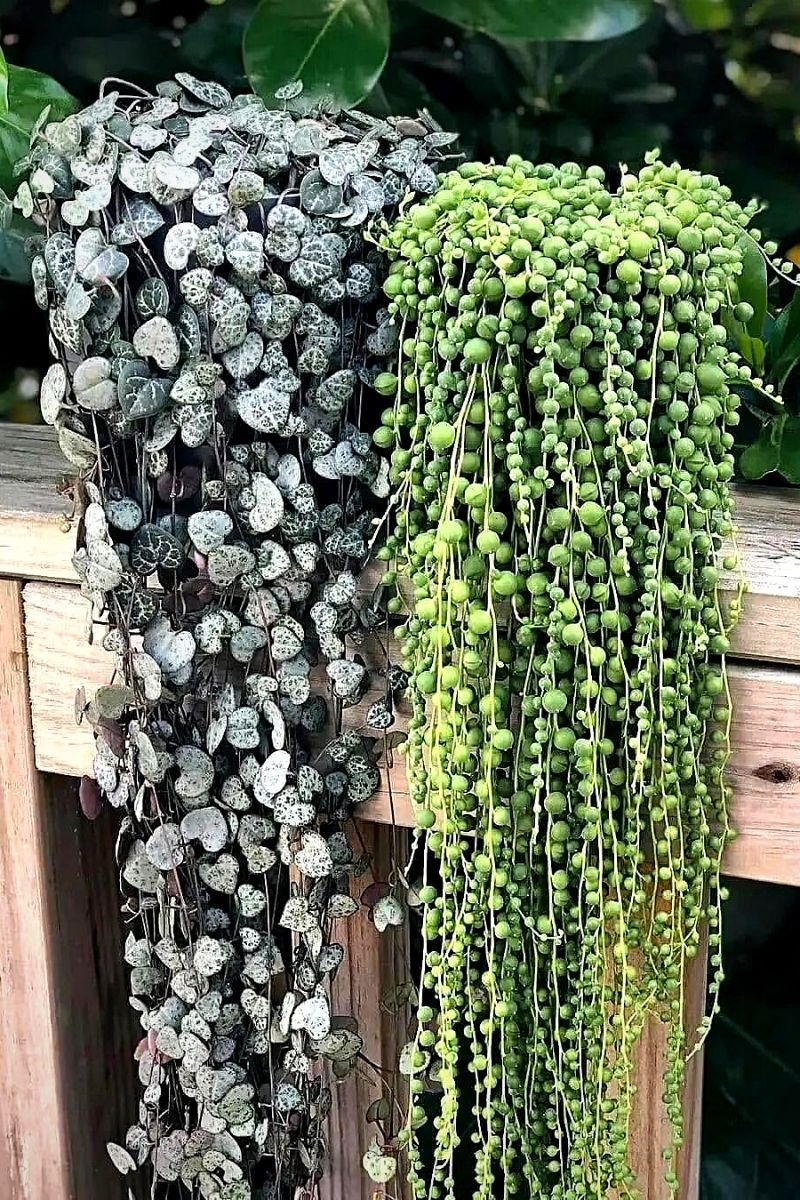
Photo by @urbanjunglevibe on Instagram
String of Hearts is delicate and hence elegant-looking, which is why it is perfect for hanging gardens. As an enthusiast in hanging gardening, this plant makes a great addition as it brings a touch of romance and whimsicalness to the whole setting.
The Long-Legged Spider Plant
Also going by the names spider ivy, airplane plant, or ribbon plant, as well as numerous other monikers (including the botanical name Chlorophytum Comosum), this popular houseplant has long, narrow leaves resembling spiders’ legs, that arch gracefully over the sides of the hanging basket in which they are planted.
These widely popular houseplants are one of the easiest to propagate, grow quite fast, and do not require much to take care of. Spider plants produce small, white flowers and prefer bright, indirect light. Whether you choose to grow them in a hanging basket or flower box, spider plants are sure to bring a touch of natural beauty to your home.
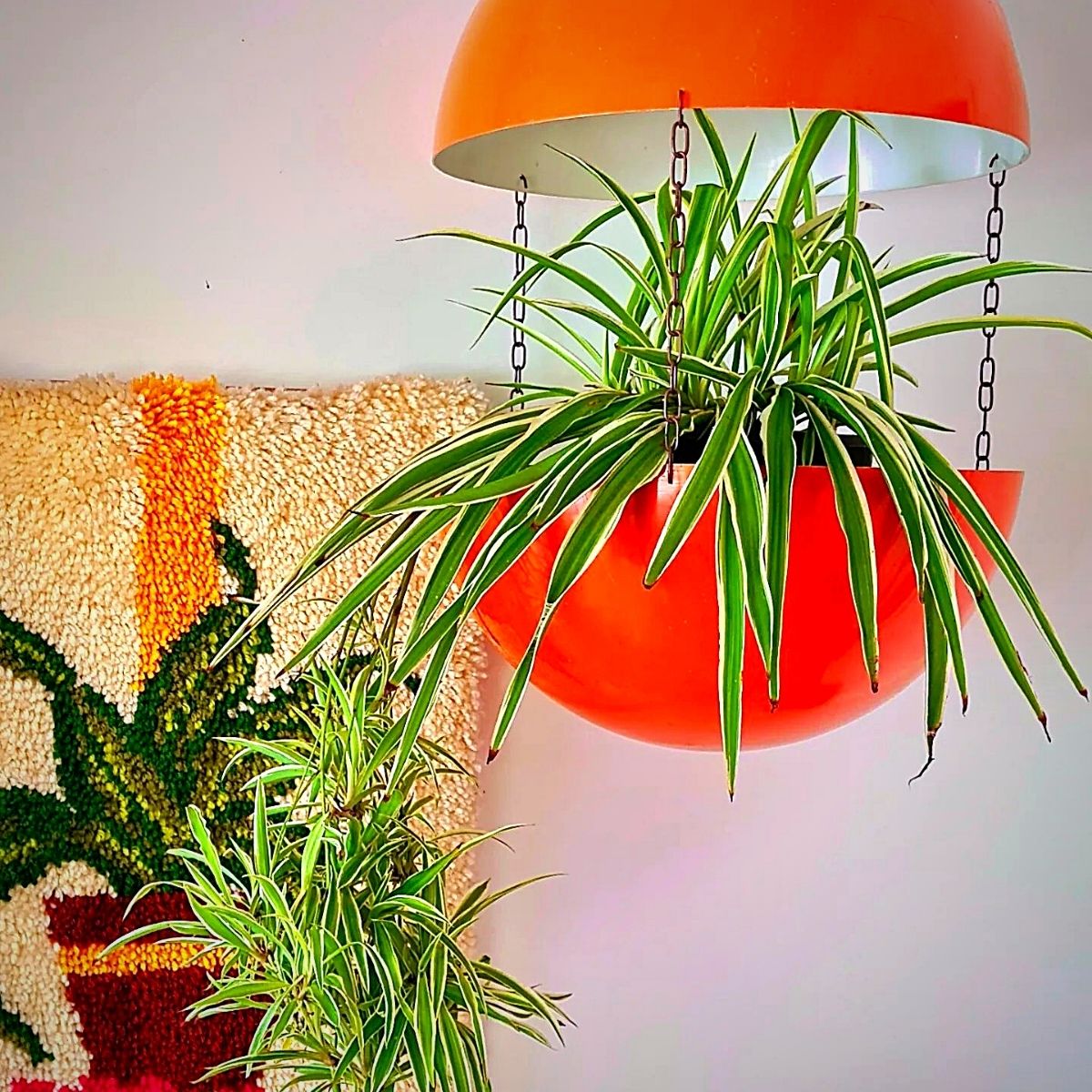
Photo by @retro_saz on Instagram
They can be grown in hanging pots or baskets and are known for their air-purifying properties, making them a great addition to any indoor space.
The Eye-Catching Lipstick Plant
Also called Lipstick vine, or Aeschynanthus, this is quite a unique plant that produces cascading stems covered in small, tubular flowers that resemble tubes of lipstick. It is quite an interesting plant with dark leaves and scarlet, tube-shaped flowers.
Lipstick plant which is native to the tropical and humid rainforests of Java north in the Malay Peninsula prefers bright, indirect light and consistent moisture.
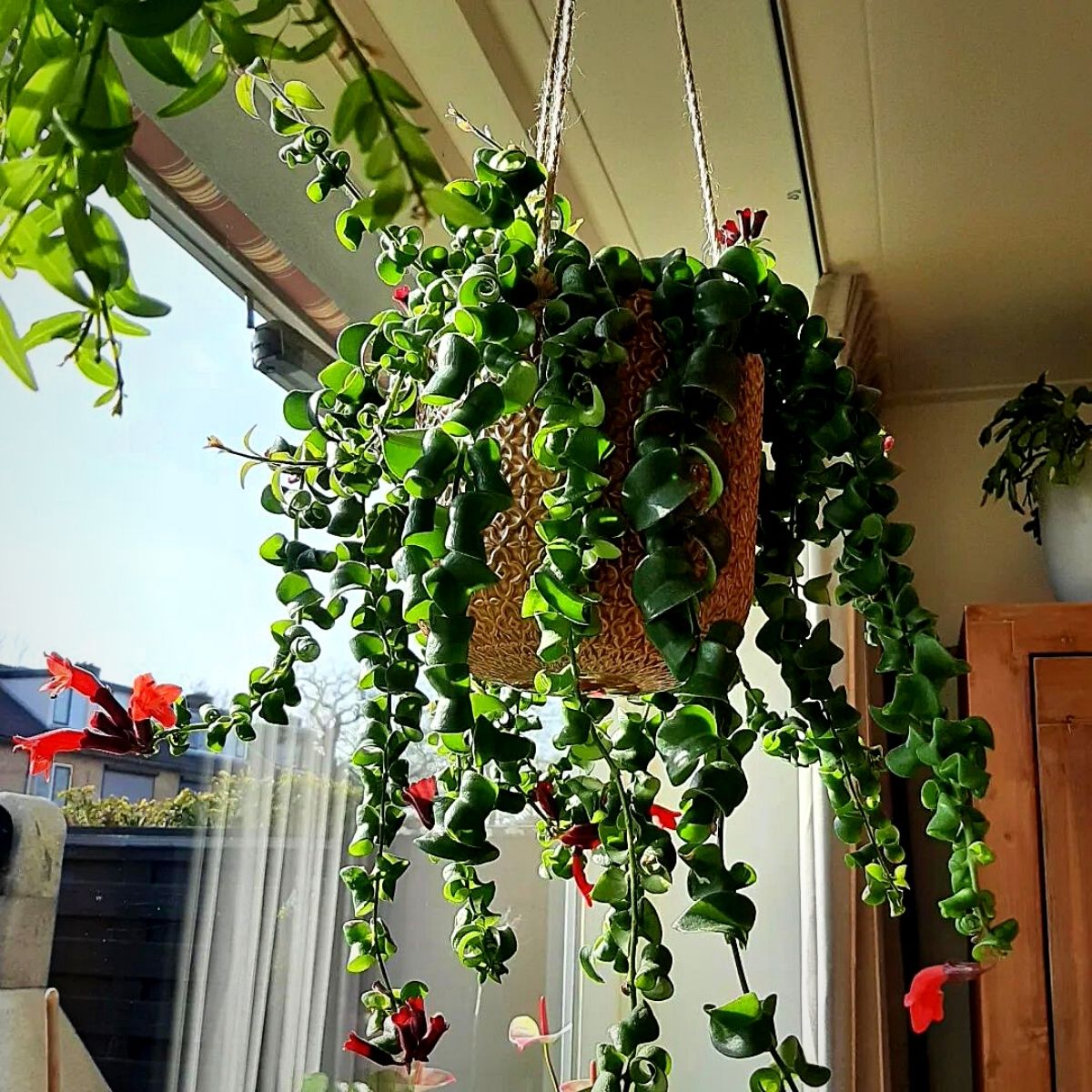
Photo by @plan_t_lad_y on Instagram
It is touted to make the perfect choice for hanging baskets, as its stems grow two feet long or even longer and the plant itself brings a bit of the tropics indoors wherever it is grown.
The Easy-To-Grow Pothos
Pothos is a houseplant that is easy to grow and has thick waxy heart-shaped leaves that come in a variety of colors; from green to variegated yellow or white.
Pothos, which is sometimes called devil’s ivy, is a trailing plant that can be grown in a hanging basket, allowing its vines to cascade over the sides of the container in which it is planted.
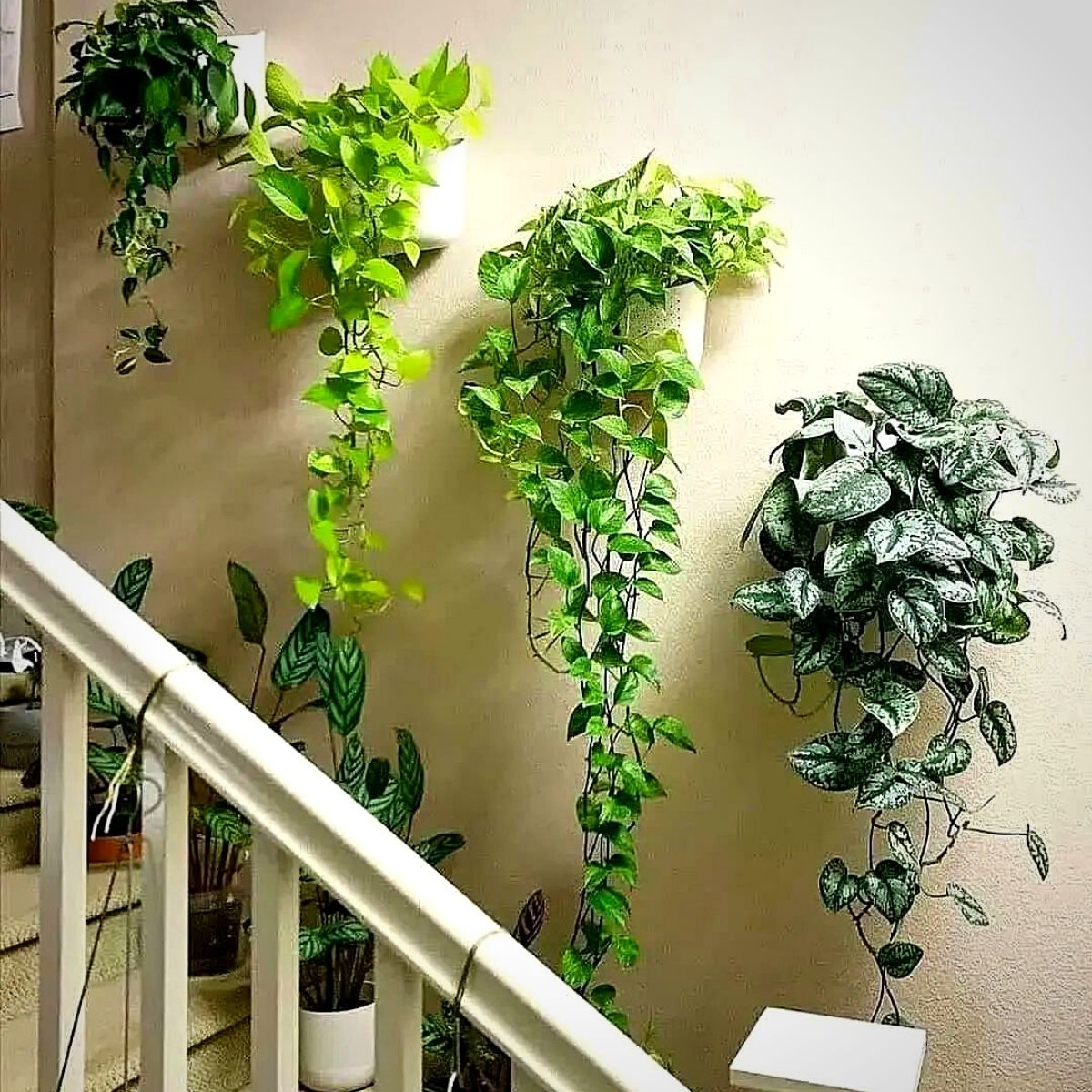
Photo by @indoorjungledecor on Instagram
It comes in numerous varieties and prefers bright and indirect light. The houseplant produces small, white flowers.
The Classic English Ivy
Also classified as a woody vine, this classic trailing plant has small, waxy leaves that come in a variety of shapes and colors. It has been a popular houseplant for ages.
The plant is surprisingly said to offer numerous other health benefits. As a houseplant, it helps in purifying the indoor air. It also helps in improving respiratory issues and acts as an anti-inflammatory and antioxidant.
English ivy produces small, greenish-yellow flowers and prefers bright, indirect light, and is therefore a good addition to your indoor hanging garden collection.
Epiphytic Hanging Orchids
Hanging orchids are those that are grown in hanging baskets or mounted to a surface. They can even be grown outdoors on trees if you live in regions where the climate is perfect. These showy flowers can be grown indoors in containers as well.
These elegant plants produce beautiful, long-lasting flowers in a wide range of colors and patterns, and prefer bright, indirect light and consistent moisture. Many such orchids are epiphytic plants and do not have to be attached to the ground in order to grow. They can grow on other plants or on some physical support.
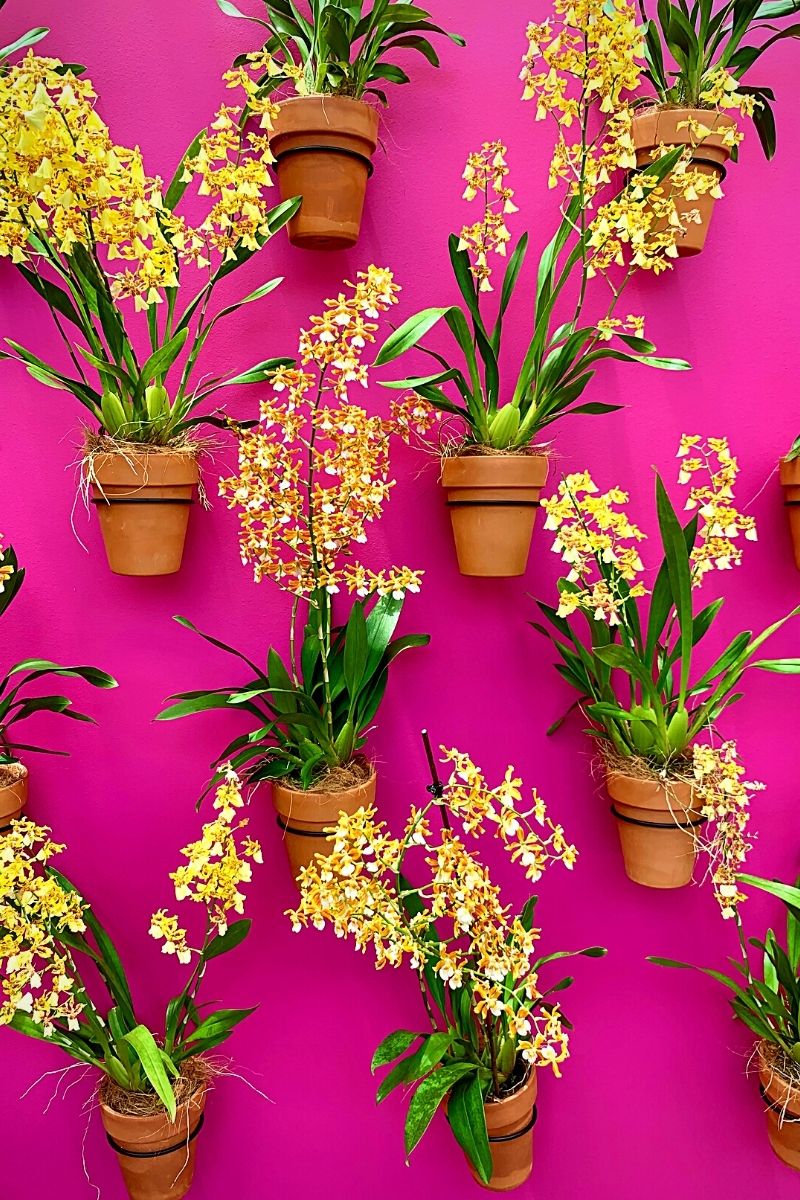
Photo by Gabrielle Audu on Unsplash
Epiphytic plants are not necessarily parasitic since they absorb water and the nutrients that they need from rain, air, and other nearby sources.
In their natural environment, around 70 percent of orchids -which are a great way to create an indoor growing environment for some eye-catching blooms- grow on trees or rock formations.
The Popular African Violets
African violets are one of the world's most popular houseplants. These popular houseplants have fuzzy leaves and produce clusters of small, jewel-like colorful flowers that bloom throughout the year.
They are native to Tanzania, Kenya, and other areas of East Africa, and are easy to grow at home. They, however, require the right medium for cultivation, nutrients, and environment to thrive.
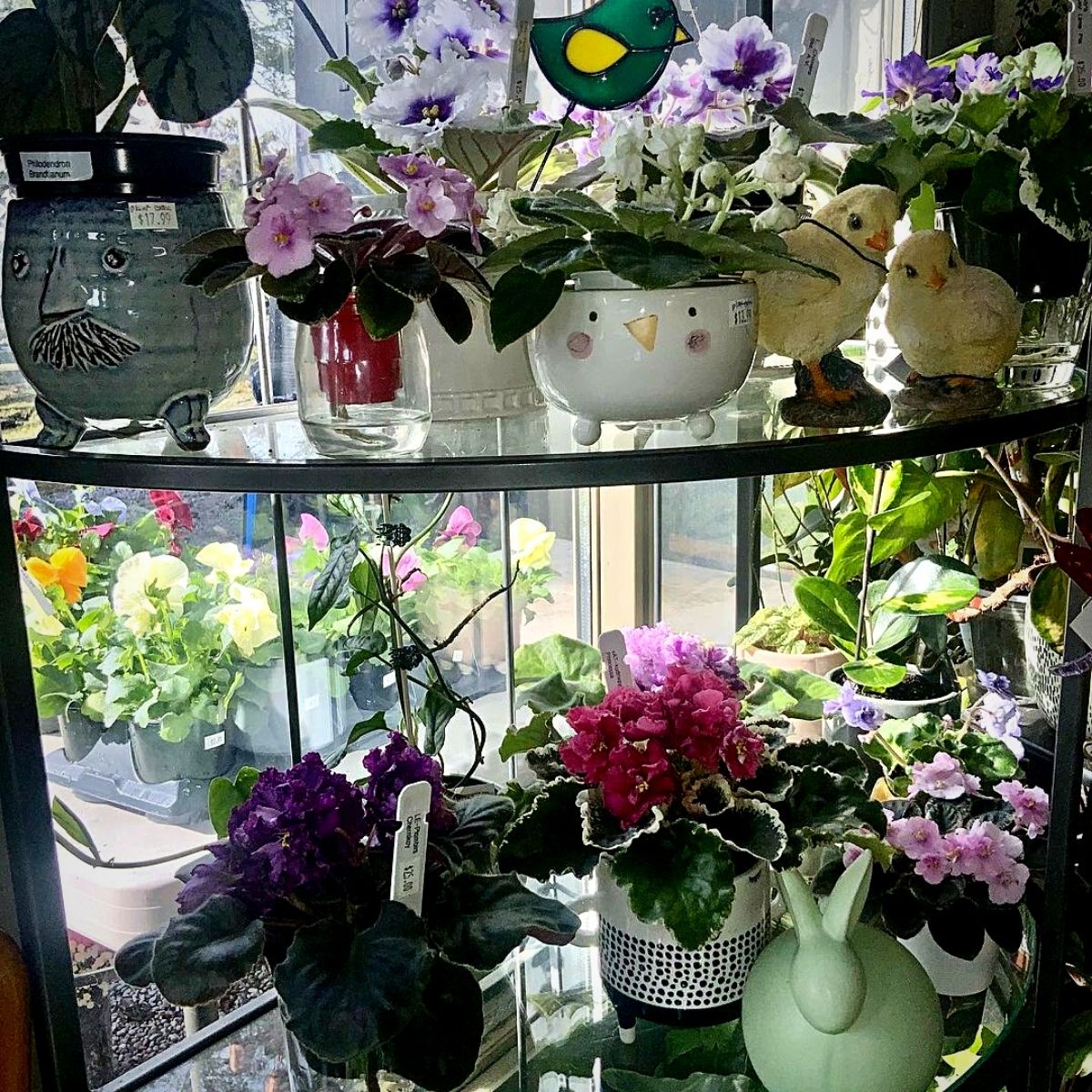
Photo by @burleys.gardens on Instagram
African Violets prefer bright, indirect light and consistent moisture, and when growing them in little indoor spaces, they can be planted in small pot groupings for a much showy display of their beauty.
The Equally Popular Fuchsias
Fuchsias are another great option for hanging gardens. They are a popular pick for hanging baskets because of their elegant, drooping flowers that come in shades of pink, purple, and red, and which droop on the sides of the container that they are grown in.
These plants grow well in filtered light and are particularly intolerant of heat, so it is wise to ensure that the baskets or planters in which you grow them have some dappled shade. Fuchsias are therefore an addition that you can invest in for your indoor hanging garden.
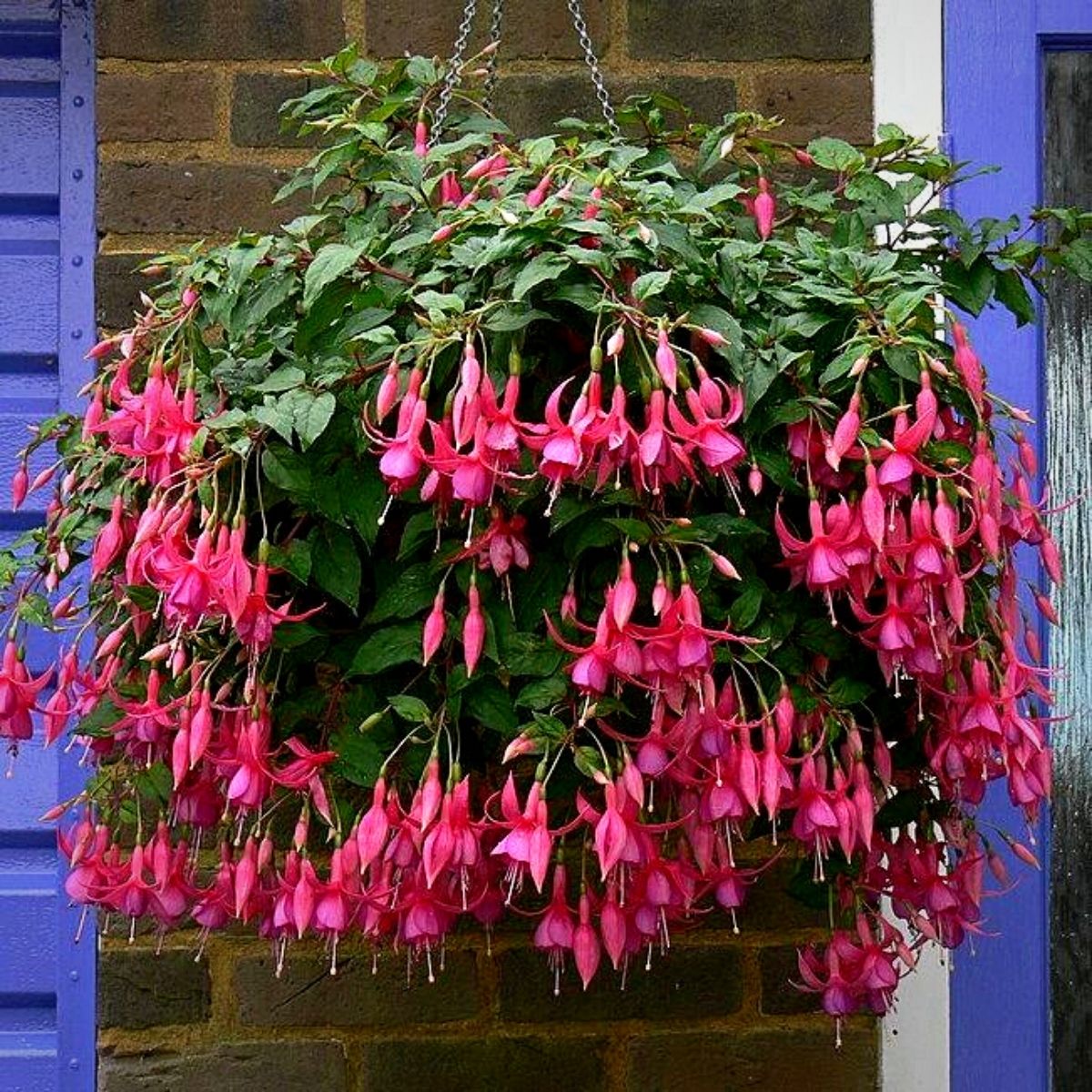
Photo by @fuchsia_plug_plants on Instagram
Hanging Gardens Need Not Be Expensive to Grow
Hanging gardens do not necessarily have to be an expensive idea to recreate inside your home. Several unused items right in your possession can effectively be recycled to create these stunning oases right where you stay.
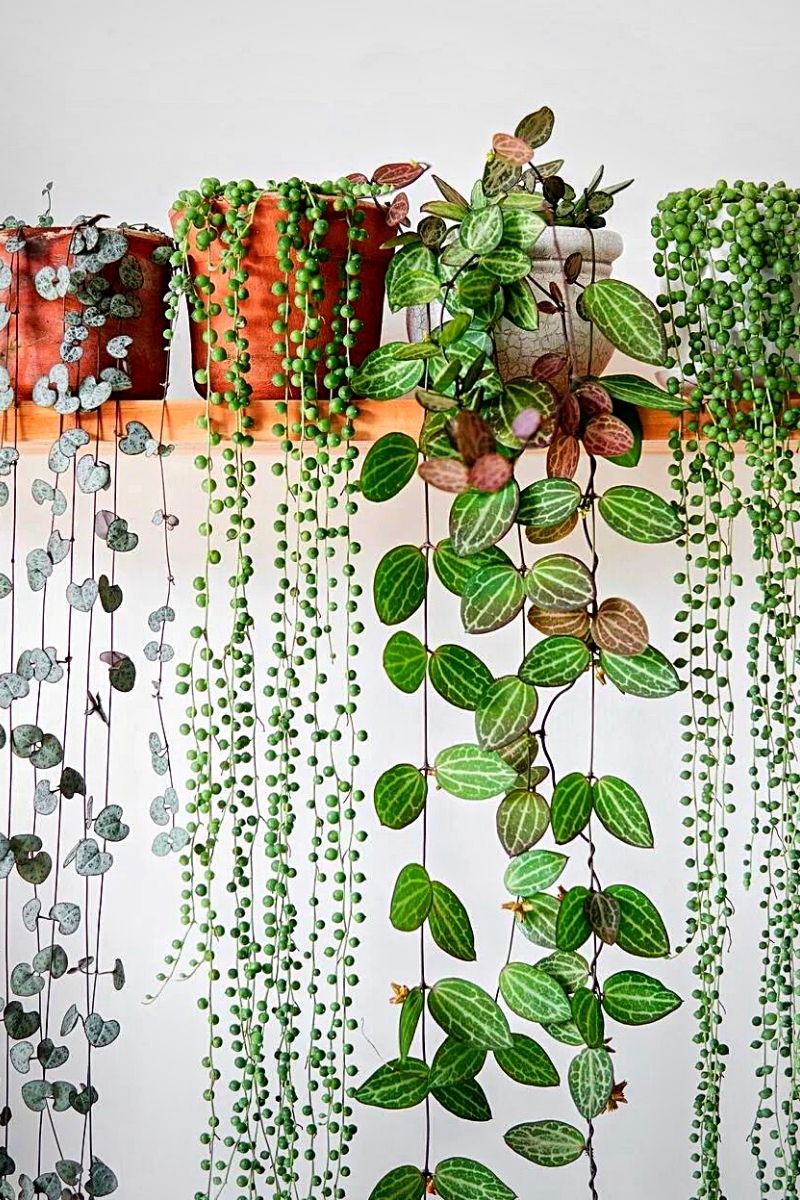
Photo by @plantinsight on Instagram
And the best part is that you can then enjoy some sort of bucolic serenity, right inside your urban house. So, whether you're a beginner or an experienced gardener, there's always a hanging plant that perfectly suits your liking!
Featured image by Tara Winstead on Pexels, header image by Geraldine Dukes on Unsplash.

